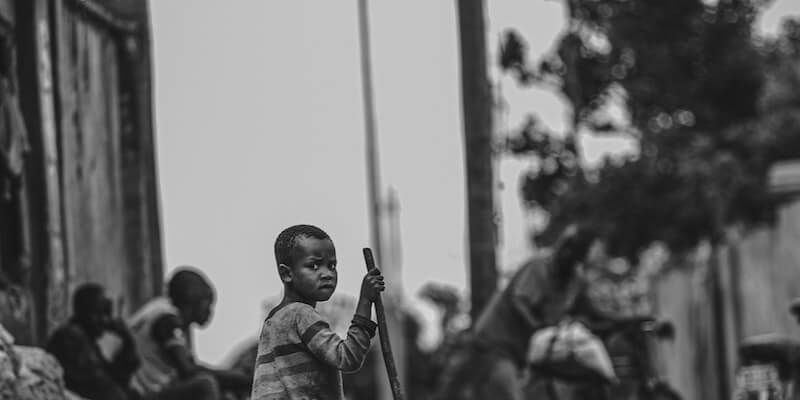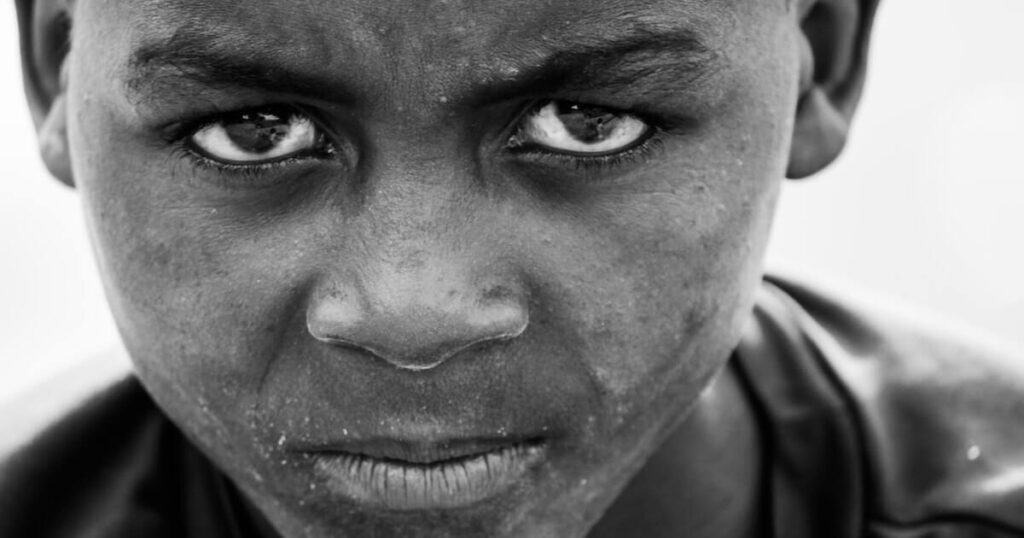Did you know that between the 16th and 19th centuries, over 12 million Africans were forcibly taken from their homes and transported across the Atlantic Ocean to be sold into slavery in the Americas? Yes, this was how the colonisations operated and treated the natives.
The crude and disturbing situations amidst the colonizers that brought the lives of Africans at toss are highly controversial and worth forming a point of view. The topic Things Fall Apart as a postcolonial novel talks about the harsh realities of how it impacted the traditional lives of the African natives.
To have a complete idea of Things Fall Apart As a Postcolonial Novel, here in this blog you will read about Chinua Achebe’s Things Fall Apart characters, a summary, as a postcolonial novel, a novel about decolonization, and some of the major themes.
Chinua Achebe Things Fall Apart Summary

“Things Fall Apart” is a novel written by Chinua Achebe, and published in 1958. It is set in the late 19th century in the Igbo village of Umuofia, in what is now present-day Nigeria. The novel narrates the story of Okonkwo, a proud and successful warrior. It further explores the complex intersections of culture, tradition, and power in pre-colonial African societies, and the challenges they faced in the wake of European colonialism. It is a powerful critique of colonialism and a call for a more nuanced understanding of the complexity of traditional African societies and the impact that colonialism brought to their lives.
Overview of The Novel Things Fall Apart
“Things Fall Apart” is divided into three parts to speak of the impact of postcolonialism on African societies.
In Part One, the novel introduces the reader to the Igbo community and its way of life before the arrival of European colonists. This part of the book sets the stage for the rest of the novel, and the reader gets a glimpse of the cultural richness of the Igbo people.
In Part Two, the story begins to focus on the impact of colonialism on the Igbo community. The arrival of Christian missionaries and the imposition of Western values and beliefs on the Igbo people start to disrupt the traditional way of life. The protagonist, Okonkwo, struggles to maintain his status and identity in the face of these changes, which ultimately leads to his downfall.
In Part Three, the novel explores the aftermath of colonialism on the Igbo people. The community is left fragmented, and the Igbo people struggle to reconcile their traditional beliefs with the new realities of a postcolonial world. The novel ends with a sense of uncertainty, as the Igbo people are left to pick up the pieces of their shattered society and try to forge a new path forward.
By dividing the novel into these three parts, Achebe is able to show the impact of colonialism on African societies in a nuanced and complex way. He demonstrates how the arrival of colonists disrupted traditional ways of life, and how the aftermath of colonization left African societies struggling to find their footing in a rapidly changing world. “Things Fall Apart” stands as a powerful testament to the resilience of African cultures in the face of colonialism, and the lasting impact of this tumultuous period of history.
Things Fall Apart Characters
“Things Fall Apart” features a variety of characters, each with their own unique perspective on the impact of European colonialism on traditional African societies. Here is a small gist of Things Fall Apart characters:
- The protagonist, Okonkwo, is a proud and successful warrior who is deeply invested in the values and traditions of his community.
- Other important characters include Okonkwo’s wives and children, as well as his extended family and fellow villagers.
- The novel also includes important European characters, such as the British colonial administrator Mr. Brown and the Christian missionary Reverend James Smith.
Each character represents a different perspective on the complex issues at the heart of the novel, including the impact of colonialism on traditional culture, the intersection of gender and power, and the importance of tradition and community.
Discuss Things Fall Apart As a Postcolonial Novel

Chinua Achebe’s “Things Fall Apart” is a seminal work of postcolonial literature that depicts the devastating impact of European colonialism on traditional African societies. Published in 1958, it is set in the late 19th century in the Igbo village of Umuofia, in what is now present-day Nigeria. It is through the character of Okonkwo, a proud and successful warrior, the novel explores the complex intersections of culture, tradition, and power in pre-colonial African societies, and the challenges they faced in the later presence of European colonialism.
One of the most striking aspects of “Things Fall Apart” as a postcolonial novel is its critique of colonialism and its devastating impact on the traditional African way of life. The arrival of European colonists, with their guns, religion, and government, fundamentally altered the social and cultural landscape of Umuofia.
Okonkwo, who is deeply invested in the values and traditions of his community, resists the encroachment of colonialism at every turn, but ultimately cannot withstand the overwhelming force of European imperialism. As a result, the novel is a powerful indictment of colonialism, and a call for a more nuanced understanding of the complexity of traditional African societies.
The Devastating Effect of Colonialism In Things Fall Apart

The novel highlights the ways in which colonialism disrupted the social and cultural practices of the Igbo people, and how this disruption led to a breakdown of their traditional way of life. For example, the novel portrays the impact of Christian missionaries on the Igbo religion and the ways in which they’re proselytizing led to the erosion of traditional spiritual practices. Additionally, the introduction of a colonial government and legal system undermined the authority of the traditional leaders of Umuofia and replaced their justice system with a foreign one that was often insensitive to local customs and practices.
Gender Vs Power
Moreover, “Things Fall Apart” is a powerful exploration of the intersection between gender and power in traditional African societies, and how this intersection was fundamentally altered by colonialism. The novel portrays the intricate gender roles and power dynamics within Igbo society, and how these roles and dynamics were disrupted by the arrival of European colonizers. For example, the novel highlights the ways in which the colonial government empowered women in ways that were previously unthinkable in traditional Igbo society, and how this shift led to tensions between men and women in Umuofia.
Criticism of Western Narrative
Finally, “Things Fall Apart” also provides a powerful critique of Western narratives about Africa and the ways in which these narratives perpetuate stereotypes and distortions about the continent and its people. Through the character of the British colonial administrator Mr. Brown, the novel critiques the ways in which Westerners view Africa as a primitive and uncivilized place and the ways in which these stereotypes have been used to justify colonialism and imperialism.
Conclusion
In conclusion, “Things Fall Apart” is a work of postcolonial literature that explores the impact of European colonialism on traditional African societies. Through its powerful portrayal of the disruption of traditional cultural practices, the erosion of gender roles and power dynamics, and the perpetuation of Western stereotypes about Africa, the novel provides a nuanced and complex understanding of the complexities of postcolonial Africa. It is a testament to the resilience of African culture in the face of colonialism, and a call for a deeper understanding and appreciation of the diversity and richness of African societies.
Discuss Things Fall Apart As a Novel About Decolonization
“Things Fall Apart” by Chinua Achebe is a novel that can be read as a story of decolonization. It tells the story of Okonkwo, a successful warrior of the Igbo people, and his struggles to maintain his cultural identity and resist the imposition of European values and beliefs.
The novel can be read as a story of decolonization because it portrays the process of cultural and psychological liberation that occurs as Okonkwo and his people reject the domination of the European colonists. The novel begins with the arrival of European missionaries and colonial administrators, who introduced Christianity and European values to the Igbo people. The Igbo people initially resist these changes, but over time, they gradually assimilated into the colonial system.
However, Okonkwo resists this assimilation, and his resistance becomes a symbol of the larger struggle for decolonization. Okonkwo’s struggle to maintain his cultural identity and resist the imposition of European values can be read as a metaphor for the broader struggle of African people to assert their independence and reclaim their cultural heritage. Okonkwo’s eventual suicide can be seen as a tragic consequence of his inability to reconcile his own cultural identity with the changing world around him.
Moreover, “Things Fall Apart” can also be read as a critique of the colonial system itself. The novel portrays the devastating impact of colonialism on traditional African societies, particularly in terms of the erosion of cultural values and traditions. The novel challenges the assumption that European culture and values are superior to African culture and values, and it highlights the importance of cultural self-determination.
Conclusion
In conclusion, “Things Fall Apart” can be read as a novel about decolonization. The novel portrays the struggle of the Igbo people to maintain their cultural identity and resist the imposition of European values and beliefs. It can be seen as a metaphor for the broader struggle of African people to assert their independence and reclaim their cultural heritage. The novel also critiques the colonial system itself, exposing the inhumanity and brutality of colonialism, and challenging the assumption that European culture and values are superior to African culture and values. “Things Fall Apart” remains a powerful and important work of literature.
Describe The Themes of Things Fall Apart
“Things Fall Apart” by Chinua Achebe is a richly layered novel that explores a wide range of themes. Here are three of the most important themes in the novel:
- The Clash Between Tradition and Change:
The conflict between tradition and change is a central theme in “Things Fall Apart.” The novel portrays the Igbo people’s struggle to maintain their traditional way of life in the face of colonialism and the imposition of European values. The tension between tradition and change is embodied in the character of Okonkwo, who is fiercely proud of his Igbo heritage and deeply opposed to the changes brought by the Europeans. This tension is also evident in the conflict between Okonkwo and his son Nwoye, who converts to Christianity and rejects his father’s traditional values. Ultimately, the novel suggests that the clash between tradition and change is inevitable and that the key to survival is adaptability.
- The Importance of Community:
Another important theme in “Things Fall Apart” is the importance of community. The novel depicts the Igbo people’s strong sense of communal identity and their deep connection to their culture and traditions. This sense of community is evident in the rituals and ceremonies that are central to Igbo life, as well as in the way that people work together to support one another. However, this community is threatened by the arrival of the Europeans, who seek to divide and conquer the Igbo people by converting them to Christianity and disrupting their traditional way of life.
- The Consequences of Imperialism:
The novel also explores the consequences of imperialism, particularly in terms of its impact on traditional African societies. The arrival of the Europeans leads to the erosion of Igbo culture and traditions, as well as the loss of political and economic autonomy. The Europeans are portrayed as insensitive and brutal, with little regard for the lives and well-being of the African people. The novel suggests that imperialism is a destructive force that leads to the loss of cultural identity and the fragmentation of communities.
Frequently Asked Questions
What is the main plot of Things Fall Apart ?
The main plot of Things Fall Apart is the impact of European colonists upon the African traditions, cultures, and values.
Why is Things Fall Apart so controversial ?
Things Fall Apart is controversial because it depicts the harsh realities of colonialists. In addition, the criticism of the consequences of Imperialism also raises much controversy.
What are the major themes in Things Fall Apart?
Some of the major themes in Things Fall Apart are as follows:
1. The clash between tradition and change
2. Importance of community
3. Consequences of Imperialism
4. Resistance to colonisers
5. Importance of religion
What is the impact of colonialism in Things Fall Apart?
The impact of colonialism is entirely depicted in the Things Fall Apart. The effect of European imperialism on traditional African societies, the loss of cultural identity and the breakdown of social structures. The portrayal of the Igbo people’s struggle to maintain their way of life in the face of colonialism, sheds light on the ongoing impact of colonialism on contemporary African societies.
Why Is Things Fall Apart an important text in African literature?
Things Fall Apart is an important text in African Literature for several reasons the prime being that Chenua Achebe the first African writer. Other reasons include the picturisation of the complex situation of Africa, and the book acting as a pillar in the role of decolonisation.
Also, read about Tonight I Can Write As An Elegy